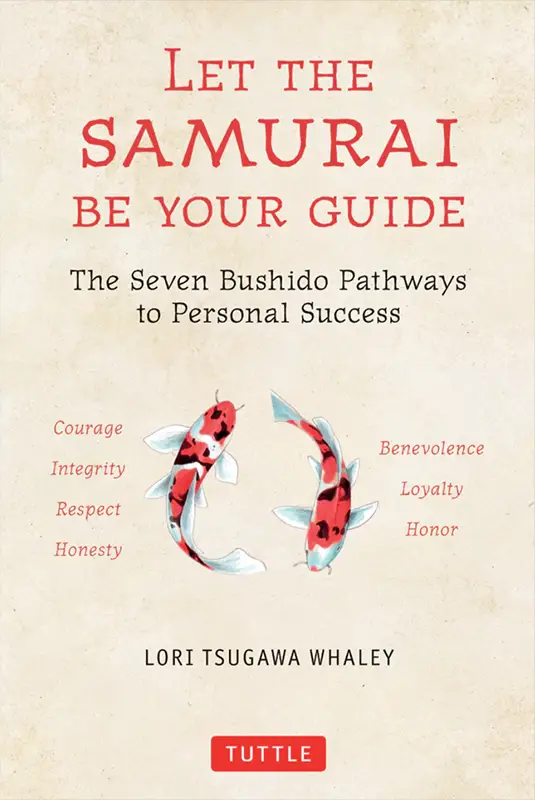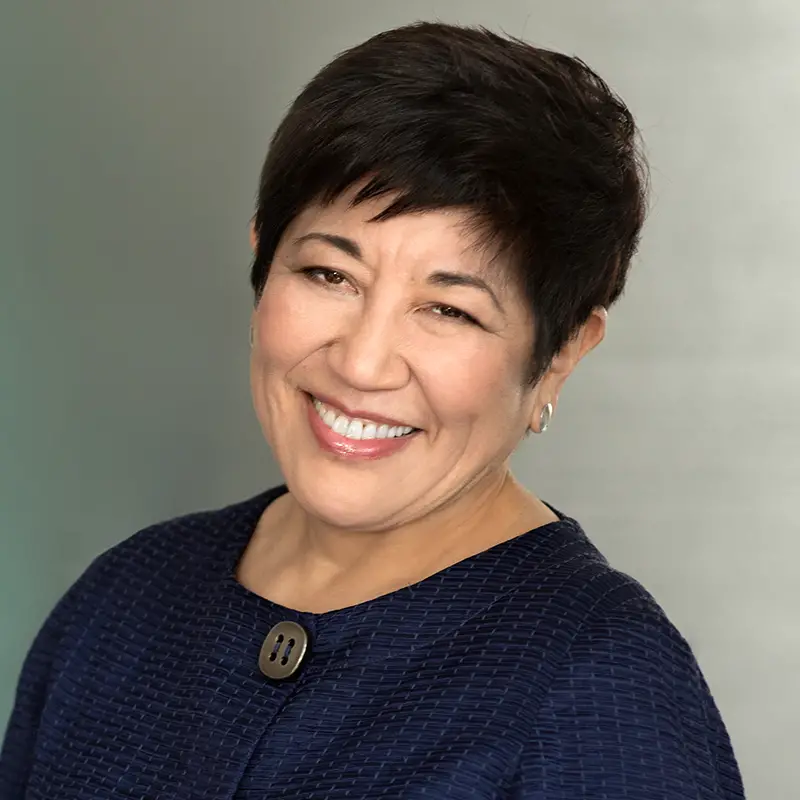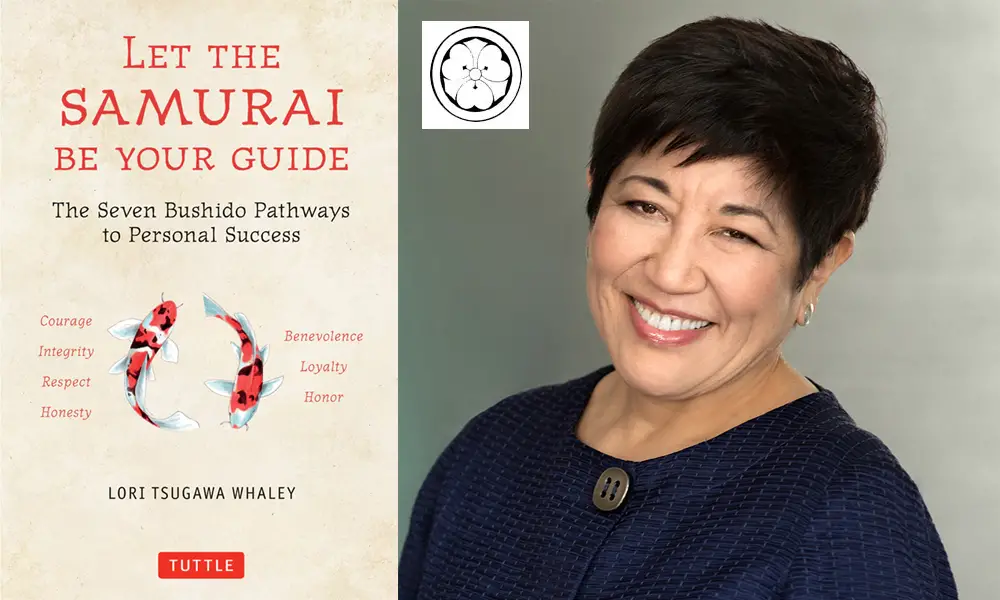Lori Tsugawa Whaley is a Japanese American author, motivational speaker, and life coach with a very interesting family history. With lineage descending from the samurai warrior class, she has been applying ancient samurai teachings to personal development since 2010. Although she is a frequent traveller to Japan, she resides in a Japanese-style home outside of Seattle, WA.
Her approach to coaching is using the Code of Bushido for personal success and professional advancement in the modern world through the teaching and application of Seven Principles of Business Ethics inspired by the Way of the Samurai. She has coauthored four other books on personal development using samurai principles, but the focus of this interview is the new edition of her latest book, Let the Samurai Be Your Guide (Tuttle Publishing, 2020).

Voicu Mihnea Simandan: There are many life coaches out there and they all have a similar approach to coaching, but it seems to me that you’re approach is quite different. How does the Code of Bushido fit into this?
Lori Tsugawa Whaley: Bushido, samurai code of ethics, is a warrior’s code. Webster’s Dictionary describes a warrior as: one who experiences or is engaged in conflict. Most of the challenges people deal with can be associated with some type of conflict in their lives, be it internal or external.
To overcome life’s challenges, you must have the resolve of a samurai warrior.
VMS: Tell us a more about your samurai warrior class lineage. I suppose this was the reason why you chose Bushido as a research topic in the first place.

LTW: During our first trip to Japan in 1982, my Tsugawa relative (paternal side of the family) gave me this image of our family kamon (crest) which is ‘Ken Katabami’ from samurai lineage, and is one of the five main crests of Feudal Japan. ‘Ken’ is the stylized sword, and ‘Katabami’ symbolizes strong bloodline. My knowledge of our samurai lineage is limited, but the crest ‘says it all.’
Yes, the reason I researched the samurai code of bushido was to find out about my ‘roots’ to obtain a better understanding of my Japanese heritage.
VMS: To many, Bushido deals with battles, warriors, and heroic sacrifice (plus even belongs to the world of fiction and entertainment!)… How can this ancient Japanese code be applied in both people’s personal lives as a self-development tool and in business, as a growth “hack”?
LTW: The code of bushido covers seven character traits/principles: Courage, Integrity, Benevolence, Respect, Honesty, Honor, and Loyalty. These are principles that apply not only to the warrior, but form the basis of a firm foundation for life. The samurai lived by these principles because they provided the structure of a life worth living. These same principles are as relevant today as they were in the days of the Shogun.
VMS: The title of your book is quite intriguing. How can the “samurai” become our guide? What’s the pathway you make reference to?
LTW: A guide is someone who ‘shows the way.’ The principles of bushido outline a code of ethics and performance that focus not on selfishness, but rather on selflessness. It is the idea or ideal of placing service to others as a form of honor. The word ‘samurai’ is derived from the Japanese word – ‘samaru’ which means to serve. A true samurai served others.
A pathway is a means of achieving a goal or specified result. Bushido is the pathway or course of action that one follows to realize the fullness of life.

VMS: How is your book different from other self-help and motivational books that also use ancient Asian concepts, such as Sun Tzu’s Art of War, as a way to deliver a message?
LTW: In the chapter on Loyalty, I wrote about the famous WWII segregated all-nisei (2nd generation Japanese American) 100th/442nd Regimental Combat Team. Initially denied the ability to serve because of their ancestry after the bombing of Pearl Harbor, these men proved their loyalty to their country, the U.S.A. This unit is the most highly decorated unit in American history for its size and length of service earning over 18,000 medals and 9,483 Purple Hearts. Their loyalty was proven through their shed blood in some of the fiercest battles of WWII.
President Truman is quoted, “You fought not only the enemy, but you fought prejudice—and won.”
The situations and people I write about we can all relate to… they’re not so much different than you or me. That’s what makes them real and that’s why they inspire us.
6. VMS: Let the Samurai Be Your Guide also details profiles of some very interesting individuals in the history of Japan and America. Who is your favourite “character”? Why?
LTW: The life and deeds of Chiune Sugihara, Vice Consul from Japan to Lithuania during WWII, was the inspiration for writing the book. I first learned of Mr. Sugihara at an exhibit at the Wing Luke Museum in 1994 in Seattle, Washington. He was from a samurai family. The courage he demonstrated in writing over 2,000 transit visas for the desperate Jewish refugees that came to him for help, in defiance of his own government is inspiring. He had nothing to gain and everything to lose because of his actions. Yet he summoned the courage to do what he knew to be right in spite of the danger he faced. The Government of Lithuania is honoring Chiune Sugihara for the entire year of 2020!
In 2010, my husband and I visited the Chiune Sugihara Memorial Hall in Yaotsu, Japan, dedicated to this man. Walking among the exhibits, it brought home to me the impact a single individual can make.
I added an 8th character trait to the bushido list in the last chapter; Ganbaru, which is the Japanese word for: try your hardest, do your best, never give up, and go for broke. I believe this word sums up the samurai spirit. My dear mother literally never gave up—no matter what! She taught by example and always found a way to accomplish the task at hand. Like Chiune Sugihara, she was an inspiration in writing my book. This chapter is about her.
VMS: The book is also a tribute to your Japanese American ancestry. What have you unearthed about the history of your family?
LTW: One thing that struck me as I examined the Japanese experience is how resilient these people were. The very idea of leaving their homeland and everything they knew to start a new life in a foreign land is amazing. To face prejudice and hardship with sheer determination to move forward against all odds and succeed inspired me. I really became aware of how this warrior code of courage, honor, and integrity really was a guiding force in their survival… and ultimately their success.
As an example, my paternal grandmother became a widow with seven children, speaking very little English in the middle of the Depression. Yet she summoned the strength to carry on with the family business and continued until incarceration forced the business to close during WWII.
My maternal grandparents worked hard in the restaurant/hotel business and were uprooted because of the war. They too started over from scratch, determined to ‘make a go’ of it.
All of my grandparents were living examples of ganbaru and have certainly inspired me throughout my life.

VMS: Why do you think the interment of the Japanese Americans during World War II is something that the history books don’t focus that much on?
LTW: The forced removal and incarceration of Japanese and Japanese Americans (2/3 were US citizens) during WWII, unfortunately, is a rather dark chapter in US history. Few of those 126,000 that experienced it talked about what they encountered. My generation, the sansei (3rd generation Japanese Americans) helped to bring this issue to light. The issei (1st generation) and nisei (2nd generation) felt a great deal of shame for the incarceration – their only crime was their ancestry.
Without a strong voice to advocate for a cause, negative situations usually are avoided or ignored by those that record history. To some extent, pilgrimages to many of the 10 former camp sites help educate others about the wartime experience and organizations such as Densho collect oral histories of the former incarcerates so that this chapter of American history will be neither forgotten nor repeated.
VMS: Let the Samurai Be Your Guide required you tapping both into your personal wealth of knowledge but also doing extensive historical research and fact checking. How long did this take and what’s the biggest lesson you, as an author and life coach, have learned?
LTW: The book was my effort/goal to overcome the disabilities I encountered after diagnosed with traumatic brain injury (TBI) being rear ended twice in 2005 and 2007. My reading was tested at a seventh (7th) grade level which made research and writing difficult. It took seven arduous years to complete. Life was challenging because I was experiencing chronic pain.
The biggest lesson I learned was to never give up. I endured thousands of doctor appointments and hours in rehabilitation. It took the resolve of a samurai to complete the task, but I gained a wealth of insight throughout this journey that I want to share with others through the book and as a basis for life coaching.
VMS: The front page of your website reminds readers that: “The world is waiting for you to unveil your unique gifts and talents. What are you waiting for?” Do you believe they’ll be able to unveil their potential through your book?
LTW: I wrote the book to inspire the reader by sharing stories of how people used these principles to overcome significant challenges. Readers have shared how the book gave them courage and inspiration. They also shared how it helped them to realize that greatness lies within them as well. Let the Samurai Be Your Guide opens your eyes to this path.
With that being said, coaching is always helpful. We all know a coach is used to help great athletes reach their full potential. I love to help people reach their highest God-given gifts and talents, and discover the warrior within. If listeners would like to contact me, my email is Lori[at]LoriWhaley[dot]com, and my website is: www.LoriWhaley.com .
VMS: Thank you for your time.
LTW: Thank you for this opportunity to share the book and my story!

